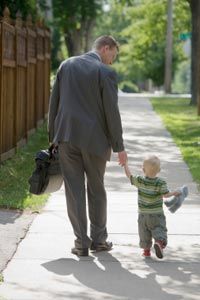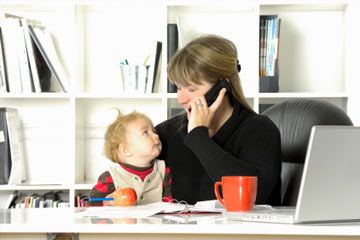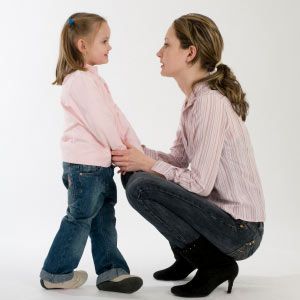While there's a good case to be made that the ideal parenting arrangement includes at least one parent acting as full-time caregiver, for many people this isn't possible -- or ideal. Many families can't afford to live on only one income, and not all parenting duos want to split the duties so sharply. In 2019, both parents in 64.2 percent of American families with children under 18 were employed [source: U.S. Census Bureau].
Two-income families enjoy better financial footing and are likely to experience less financial stress. That benefit will be enjoyed as well by the children, who aren't immune to worrying about the family's money situation. More money translates to higher-quality daycare, early education and private schooling. Families can obtain better health care, save more for their children's college education, enjoy more nights out as a family and take more frequent vacations that are nicer and longer than they might otherwise be able to afford.
Advertisement
For families that choose to pursue dual income streams by working outside the house, parents may have a sense of guilt or concern over the child's diminished access to a parent. There are advantages for children who have two working parents, however. They learn to adapt to and respect other adult authority figures who supervise them, which helps to foster socialization. Daycare also puts the child in regular contact with peers, which can promote social skills such as sharing, taking turns and working as a group. The situation can also influence children's relationship with their parents -- daughters, in particular, may view the workplace as a field upon which either gender can fairly and fully compete.
Beyond the benefits to baby and bank account, there are also pros to being a working couple. When both parents share duties equally, the couple may be happier, better able to relate to one another and enjoy a greater sense of harmony in household. Working parents must equally co-parent, coordinate activities and work together to facilitate their child's school events, rehearsals and sports practices.
Advertisement


